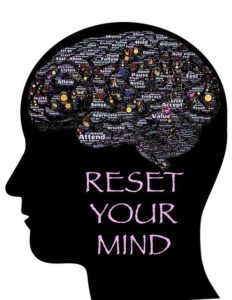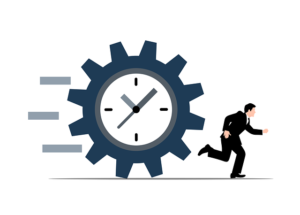Stress is an unavoidable part of life, but that doesn’t mean you have to let it take control. There are a variety of short-term solutions available to help manage stress in the moment. From activities and lifestyle changes to mental health resources, there’s something out there for everyone. In this article, we’ll explore some of the best strategies for managing stress in the short-term.
No one should have to go through life feeling overwhelmed by stress or anxiety. Thankfully, with the right tools and techniques, you can reduce your stress levels quickly and effectively. Let’s take a look at some of the best ways to manage stress in the short-term so you can get back on track and feel more relaxed and in control.
Relaxation Techniques
 Relaxation techniques are a great way to manage stress in the short-term. Different kinds of relaxation can help you reduce your levels of stress, whether it’s physical or mental. Deep breathing is one great technique that many people use to relax and reduce their stress levels. Taking slow, deep breaths helps to slow down your heart rate and lower your blood pressure. It also activates the parasympathetic nervous system which helps you calm down and feel relaxed.
Relaxation techniques are a great way to manage stress in the short-term. Different kinds of relaxation can help you reduce your levels of stress, whether it’s physical or mental. Deep breathing is one great technique that many people use to relax and reduce their stress levels. Taking slow, deep breaths helps to slow down your heart rate and lower your blood pressure. It also activates the parasympathetic nervous system which helps you calm down and feel relaxed.
Another relaxation technique is progressive muscle relaxation (PMR). This involves tensing specific muscles for a few seconds and then releasing them to help you feel more relaxed. You can start with your feet and work up through your body, tensing each muscle group before releasing them one by one. This helps to reduce any physical tension that has built up in your body due to stress. Both of these techniques can be used daily or as needed when feeling overwhelmed with stress in order to find relief quickly.
Exercise
Relaxation techniques can be a great way to manage stress in the short term, however, exercise is also an important step. Exercise can help relieve tension and anxiety caused by stress. It increases endorphins which are the body’s natural feel-good hormones. Exercise also helps reduce physical symptoms of stress such as increased heart rate, tense muscles, and insomnia. Regular exercise can also help you build up your resilience to stress. When done right and consistently, it can even help prevent future episodes of stress and anxiety. All types of exercise are beneficial for managing stress; whether that’s running, yoga or simply taking a walk outside in nature. The key is finding an activity that you enjoy and making sure that you make time for it regularly.
Cognitive Behavioral Therapy
Feeling overwhelmed by stress can be incredibly difficult to manage. Thankfully, there is an effective and widely used technique for reducing stress known as Cognitive Behavioral Therapy (CBT). CBT is a form of psychotherapy that seeks to identify and change unhealthy thinking patterns, behaviors, and emotions that lead to distress. This therapy has proven successful in helping people reduce their levels of stress and manage it better in the long-term.
CBT helps individuals recognize their negative thought patterns and provides them with coping mechanisms to challenge those thoughts. It also encourages individuals to take an active role in managing their own mental health by teaching them how to replace unhealthy thoughts with more positive ones. Additionally, CBT offers a variety of tools to help individuals better control their emotions, including relaxation techniques such as deep breathing exercises or mindfulness practice. By using these tools, individuals can learn how to manage their stress levels more effectively on a daily basis.
With the help of CBT, individuals can gain insight into their own thought processes and make lasting changes that empower them to take back control over their lives. This type of therapy is effective for anyone struggling with stress and can provide the necessary skills for improving mental health and wellbeing in both the short-term and long-term.
Mindfulness Practices
CBT is an incredibly powerful tool for managing stress in the short-term, but there are other strategies that can also be employed. Mindfulness practices are a great way to reduce stress in the moment and increase overall wellbeing. This involves actively focusing on the present moment and being aware of our thoughts and feelings without judgement. It helps us to become more mindful of our reactions to difficult situations and allows us to respond intentionally rather than react impulsively.
Mindfulness can be practiced through activities such as yoga, tai chi, meditation, or simply taking a few moments throughout the day to focus on our breath. When engaging in mindfulness practices, it’s important to remember that it’s okay if your mind wanders – it’s natural for this to happen! Simply bring your attention back gently when you notice yourself getting distracted. With regular practice, these techniques can help reduce stress over time and cultivate greater emotional resilience.
Professional Support
Seeking support from a professional can be an effective short-term solution to managing stress. A mental health practitioner, such as a psychologist or counselor, can provide techniques to help manage stressful situations and create healthier habits. They also can help identify the source of stress and develop coping strategies to deal with it more effectively.
In addition to professional support, participating in activities that bring joy and relaxation is important for reducing stress levels. Taking time for self-care like going for walks in nature, listening to calming music, or engaging in hobbies like painting and writing can be helpful when dealing with stressful moments. When it comes to managing stress, creating a balance between work and leisure activities is essential. Taking a few minutes each day to practice mindfulness or meditation can help reduce anxiety levels over time.
How Can I Manage Stress On A Daily Basis?
Managing stress on a daily basis is important for overall wellbeing and can help prevent long-term health consequences. There are several strategies that can be employed to cope with everyday stress, such as engaging in mindfulness activities, exercising regularly, taking breaks throughout the day, and setting realistic goals. Additionally, talking to friends or family members and seeking professional help when necessary can also be helpful. Taking time to relax and unwind can also go a long way in managing stress levels.
What Are The Most Effective Strategies For Reducing Stress?
Reducing stress can be difficult, but there are certain strategies that are particularly effective. Deep breathing exercises, mindfulness practices, and physical activity are all great ways to reduce the effects of stress in the short-term. Taking a few minutes each day to focus on your breath or practice yoga can help you stay focused and better manage stress when it arises. Additionally, engaging in physical activities like running or playing sports can help clear your mind and release endorphins that improve your overall mood.
What Lifestyle Changes Can I Make To Reduce Stress?
Making lifestyle changes can be a great way to reduce stress. Eating a healthy diet and getting regular exercise can help manage stress levels, as well as creating healthy boundaries in your life by saying no to activities that are too overwhelming or take away from your important tasks. Taking time for yourself each day is also essential; whether it’s reading, meditating, or simply taking a walk outside, you’ll feel the benefits of having some quality “me-time”.
What Can I Do To Cope With Stress In The Moment?
When it comes to coping with stress in the moment, there are a few things you can do. Taking deep breaths and focusing on your breath for a few minutes is one way to reduce stress levels quickly. Engaging in activities that make you feel relaxed, such as reading or listening to music, can also help create a sense of calm. Focusing on something positive and reminding yourself that this too shall pass can help put things into perspective and provide relief from stressful feelings.
How Can I Be Better Prepared To Manage Stress In The Future?
Being better prepared to manage stress in the future is key for both mental and physical health. There are a few tips that can help you stay ahead of potential stressors and create a more peaceful environment. To start, it’s important to get organized: plan ahead, break down tasks into manageable chunks, and create a realistic daily schedule. Additionally, building healthy habits such as regular exercise, eating well-balanced meals, and getting enough sleep can help strengthen your ability to cope with stress when it arises. Lastly, make sure to take breaks throughout the day to relax and recharge – this will help you stay focused on the task at hand and maintain balance in life.
The important thing to remember is that stress can be managed on a daily basis. Taking the time to identify the sources of stress in our lives, and implementing strategies to reduce them, can help us stay in control of our emotions and reactions. I need to find ways that work for me to cope with stress when it arises, as well as make lifestyle changes that will better prepare me for future stressful situations. With practice and dedication, we can all learn how to manage our stress levels and lead healthier lives.





